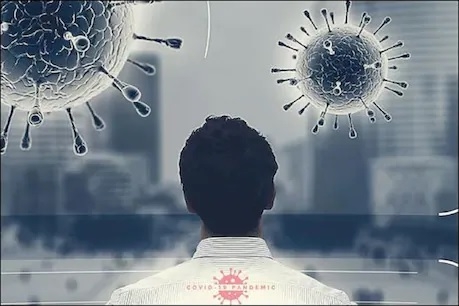bitter truth
| Date :15-May-2021 |

THE truth of how the world fell prey to the devastating coronavirus pandemic by not paying enough attention to early warnings of the virus, is a bitter truth that nobody can brush aside easily. A detailed study of the overall global situation has led the Independent Panel for Pandemic Preparedness and Response (IPPPR) to conclude that the world harmed itself incalculably by ignoring the warnings of a possible virus attack. The finding offers a disconcerting inference that the world failed on several counts, including indifferent approach to science in some countries, which affected its overall preparedness to face any pandemic. Whatever happened in the past one and a half years, therefore, needs to be analysed without any prejudice so that the world can keep itself battle-ready in case any such calamity hits the humanity again in the future.
This, of course, is a global challenge, and all the countries in the world need to stand together -- beyond all disputes and disturbances -- to offer a united response to calamitous happenings. The IPPPR has suggested strengthening of various global bodies such as the World Health Organisation (WHO) by arranging longer terms in office for their leadership positions. Many of the recommendations suggest a no-nonsense restructuring of the administrative infrastructure of various health-related organisations so that countries take them more seriously.
While the world would do well to consider the recommendations in all seriousness, it is essential, however, to note that the challenge of the current pandemic did bring forth a fairly good united response to the menace. Some countries may have blamed some others for the mess suggesting sort of a biological warfare. But overall, most countries behaved with a decent sense of larger responsibility -- extending helping hand to whosoever is in need of an immediate help. Medicines, vaccines, other medical supplies were exchanged with a sense of urgency. Expertise in disaster management also was shared freely among countries. All that activity made a positive difference to the situation in most countries.
In its own right,India played a major role as part of the early global response to the pandemic by offering massive help to dozens of countries. The leadership initiative by Prime Minister Mr. Narendra Modi is bringing together countries in the Asian region came to be hailed by the whole world. Though some domestic elements did criticise Mr. Modi for his generosity, the common people in the country understood the reality in the right light. They also realised that the current inflow of urgent international help to India is actually an outcome of the initial assistance India gave to several countries.
The pandemic has been of such demonic proportions that most countries floundered in their response. The coronavirus spread did not spare any region, and advanced countries like the United States of America recorded shockingly high numbers of affected persons as well as of deaths. In comparison, India’s performance on most counts have proved to be quite well-managed and therefore worthy of international praise. Nevertheless, the findings of the IPPPR bring forth all these dimensions in fair detail -- leading to an invariable conclusion that no matter the fairly high preparedness levels in a few countries, the overall global response was hardly up to the mark and the world at large could not grasp the seriousness of the impending problem.
In actual terms, it must be asserted that the world was fairly quick in regrouping itself in the face of the menace. It learned its lessons very fast and rearranged its thought and action to suit the challenge. No matter the ideological and political fault-lines of the global order, it must be said that the coronavirus pandemic has created a fairly good possibility of binding the world stronger together for any similar challenge in the future. However, many more lessons will be learned in the next some time if the world listens properly to what the IPPPR has said.